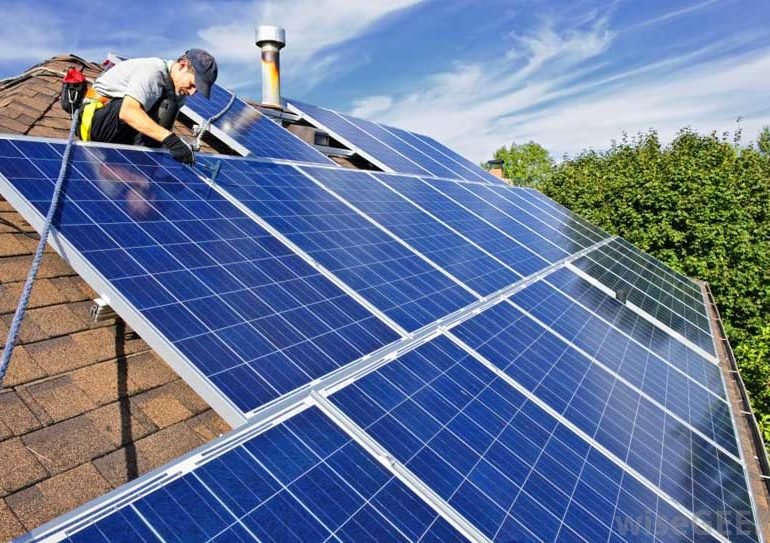Cyprus is facing a deepening energy crisis as homeowners who invested in solar power find themselves repeatedly cut off from the grid. Despite the government’s strong push for renewable energy adoption, the electricity authority of Cyprus (EAC) has been remotely shutting down residential solar panels due to an oversupply of energy.
One frustrated homeowner, speaking to the Cyprus Mail, revealed that their system had been disconnected on eight out of ten days this month. “On sunny days when we generate the most power, the panels are shut down arbitrarily by EAC,” they said.
“It is extremely frustrating.”
This issue exposes serious contradictions in Cyprus’ energy strategy. While the government encourages solar energy adoption, it has failed to provide the necessary infrastructure to support users once they invest. The country remains heavily reliant on imported liquid fuels, making electricity costs some of the highest in Europe.
Experts say the situation is the result of poor planning and regulatory failures. Polyvios Lemonaris, Chairman of the Cyprus energy regulatory authority (Cera), and Harry Zavallis, assistant director of system operations at the Cyprus transmission system operator (TSO), have both emphasised the need for urgent reforms.
Zavallis explained that the TSO uses specialised software to monitor and calculate in real time how much renewable energy can be safely fed into the national grid. If production exceeds safe levels, curtailments are ordered, first affecting large-scale solar farms before moving to smaller residential systems.
To manage disconnections, the distribution system operator (DSO) groups solar panel owners into clusters and rotates shutdowns using remote-control technology. Zavallis insists these measures are necessary for grid stability.
“If renewable energy production exceeds safe levels, it poses a risk of voltage and frequency instability, which could lead to a complete collapse of the system,” he warned.
For many solar panel owners, the reality of repeated disconnections has shattered expectations of energy independence. A homeowner interviewed by the Cyprus Mail reported that their system had been shut down for 11 out of 13 days this month.
Critics argue that Cyprus should have foreseen this issue, given that the local grid operator estimated a year ago that 28 per cent of the country’s renewable energy would be curtailed in 2024. Energy analytics firm CyprusGrid confirmed that 29 per cent of green electricity was curtailed last year, equivalent to the annual consumption of 28,000 households.
“I have no doubt that EAC is prioritising the sale of its own supply over self-generated power,” the homeowner added.
“It also seems that it would be fairer to disconnect industrial commercial solar farms rather than home units.”
The heart of the issue is Cyprus’ lack of energy storage infrastructure. Without large-scale battery systems to store excess solar energy, the grid cannot absorb fluctuating renewable supply.
MP Kyriakos Hadjiyiannis rejected claims that the House delayed storage legislation, instead blaming the government for its failure to implement a clear strategy. Opposition MP Irene Charalambides accused authorities of neglecting solar users while allowing industrial-scale solar parks to operate without storage requirements.
Experts suggest solutions such as energy storage subsidies and better grid management. While the government has launched a €35 million grant scheme for energy storage projects, critics doubt whether it will be implemented quickly enough to prevent further renewable energy waste.
Lemonaris stressed that opening the energy market to competition could also help lower electricity costs.
“The transition to an open and competitive energy environment creates the conditions for new stakeholders, enhancing innovation and providing greater flexibility,” he said.
With summer approaching and energy demand set to rise, pressure is mounting on authorities to act. Some experts propose using surplus solar energy for desalination plants, which could store water for future use, while others call for smart meters to allow households to consume their own generated power before exporting to the grid.
The homeowner, who has been warning of worsening disconnections, summed up public frustration.
“At this rate, in the summer, all PVs will be disconnected all day! A total joke.”
Unless Cyprus swiftly implements better energy storage and grid reforms, renewable energy users will continue to pay the price for the country’s failing infrastructure. If the government truly supports solar power, it must find a way to ensure those who invest in it are not left in the dark.
Energy Minister George Papanastasiou acknowledged the issue, stating that a comprehensive energy reform plan is in development.
“We recognise the need for an upgraded grid and better storage facilities,” he said. The government is also considering incentives for homeowners to install battery storage solutions, allowing them to store and use their own solar power more efficiently.
Meanwhile, the Cyprus energy agency has urged swift action, warning that continued disconnections will erode public trust in renewable energy initiatives. With climate change policies pushing for higher renewable energy targets, failure to address these grid challenges could undermine the island’s sustainability goals.






Click here to change your cookie preferences